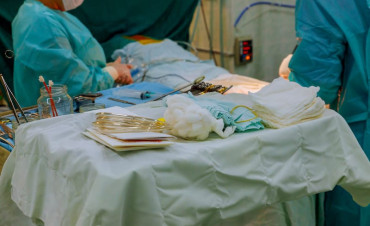Are Blood Infections Developed in The Hospital Medical Malpractice?

People go to the doctor’s office or hospital expecting to be treated for an illness or injury and then return to good health. Unfortunately, there are many times that someone goes to the hospital for help with one condition, only to contract another that may be much more serious. Hospital-acquired infections (HAI), also called healthcare-acquired infections, are a major concern in the medical community. Numerous types of HAIs can result in a dangerous blood infection, called sepsis. It’s estimated that 1.7 million people develop sepsis each year, with about 270,000 of dying as a result.
And many of those cases were completely avoidable. When those types of cases kill or injure a patient, it may be due to medical negligence, for which the party or entity at fault could be found liable.
What Is Sepsis?
Sepsis can occur when there is an infection that the body cannot fight off or an infection that is left untreated. It’s the body’s response to infections that can quickly lead to serious conditions like organ failure, tissue damage, and even death.
When sepsis develops, immune chemicals are released in the blood to combat infection. These chemicals trigger inflammation, and that leads to leaky vessels and blood clots. Blood flow is reduced, and the body’s organ systems can become damaged, depriving them of nutrients and oxygen. In the most serious cases, one or more organs will fail, blood pressure will drop, the heart becomes weakened, and the individual will go into septic shock. Once in septic shock, death is a possibility.
Sepsis doesn’t develop on its own. Instead, it is a complication of an existing infection. Any infection, anywhere in the body, can cause sepsis. This includes infections in the urinary tract, lungs, abdomen, skin, or other body parts. Sepsis can even happen with minor infections.
How Do Blood Infections Develop In The Hospital?
Contracting an infection in the hospital occurs in various ways, including.
- Concentrated exposure to germs – Hospitals are hotbeds of germs, bacteria, and other pathogens. Your exposure to germs while there is much higher than it might normally be. Infections can be spread from patient to patient.
- Invasive devices – If you have any type of medical intervention or procedure that breaks the skin or introduces a medical instrument into your body, that opens the door for infection. This can include central venous catheters, also called central lines, inserted into the large vein in the chest, neck, or groin so that medications and fluids can be administered. These catheters can stay in place for several weeks. Infections that occur from a central line are called central line-associated bloodstream infections, or CLABSI. Another medical device that increases the risk of infection is a urinary catheter. It is used to drain urine from the bladder and is inserted in the urethra. Infections related to surgery can also occur, especially around the incision in the skin, but also sometimes internally where tissue is cut. When the lungs are exposed to a ventilator tube, an infection called ventilator-associated pneumonia can occur.
- Pressure injuries – Patients who are confined to a bed or wheelchair are at risk of developing pressure injuries or sores. These tears in the skin can become infected, which can lead to sepsis if not treated promptly.
How Are Blood Infections Caused By Medical Malpractice?
Some cases of sepsis occur because there was negligence on the part of medical professionals. If your doctor (or other medical staff) did any of the following and it resulted in you developing sepsis, you may have a valid medical malpractice claim:
- Failure to identify and diagnose an infection
- Failure to identify sepsis
- Delay in diagnosing or treating sepsis
- Failure to order the appropriate blood, urine, or wound secretion testing
- Failure to prescribe or administer the right antibiotics
- Failure to provide proper or adequate fluids
- Not cleaning IV lines properly
- Not informing you of medical risks appropriately
- Failure to obtain proper informed consent
Get Help With Your Medical Malpractice Claim
Sepsis is considered a medical emergency that requires immediate attention. Suppose you or your family member contracted an infection in the hospital that developed into sepsis. In that case, you should seek a qualified and knowledgeable medical malpractice attorney as soon as possible to help you with your case.
Medical malpractice cases, including those in which sepsis is involved, are typically complicated matters that require both legal and medical expertise. At Ross Feller Casey, we have medical doctors on our staff who will review your medical records and investigate your case. Our team will work on your case diligently, allowing you to concentrate on your recovery. We have helped clients like you recover large settlements and win large verdicts because we are prepared to take every case to trial.
Contact our office today for your free case review. We handle all our medical malpractice cases on a contingency basis, which means there is no charge to you until there is a financial recovery.
Disclaimer: Ross Feller Casey, LLP provides legal advice only after an attorney-client relationship is formed. Our website is an introduction to the firm and does not create a relationship between our attorneys and clients. An attorney-client relationship is formed only after a written agreement is signed by the client and the firm. Because every case is unique, the description of awards and summary of cases successfully handled are not intended to imply or guarantee that same success in other cases. Ross Feller Casey, LLP represents catastrophically injured persons and their families in injury and wrongful death cases, providing legal representation in Pennsylvania and New Jersey.





